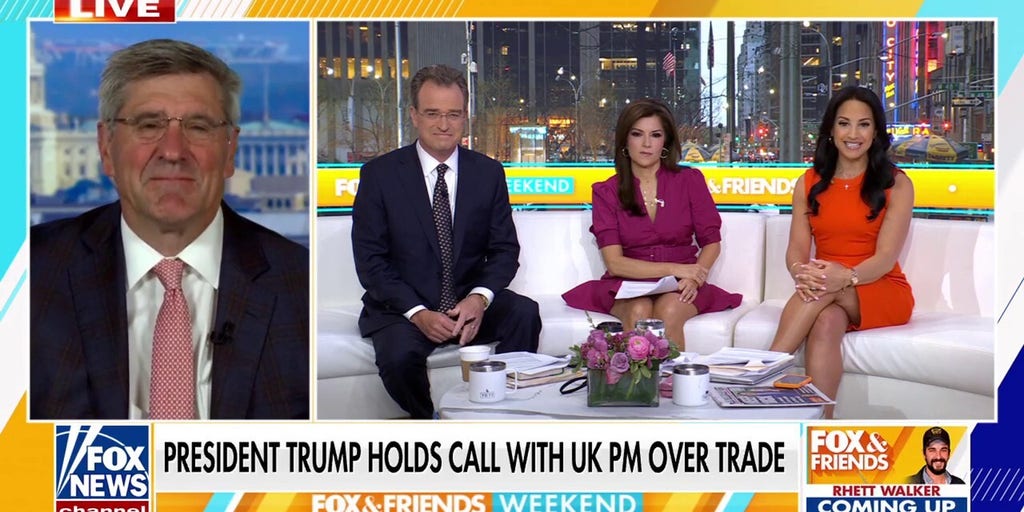Trump and Sunak Trade Talks: Tariff Concerns
The potential for renewed trade talks between former US President Donald Trump and current UK Prime Minister Rishi Sunak has ignited a flurry of speculation, particularly regarding the thorny issue of tariffs. While the likelihood of such talks remains uncertain, examining the potential implications, particularly concerning tariffs, is crucial for understanding future transatlantic trade relations.
A History of Tariff Tensions
The relationship between the US and UK, while historically strong, has faced significant trade friction in recent years. Trump's presidency was marked by a significant escalation of trade disputes, including the imposition of tariffs on various goods. While a comprehensive trade agreement wasn't reached under his administration, the seeds of discord regarding tariffs were sown. This legacy continues to cast a shadow over the current trade landscape.
Trump's Tariff Approach: Protectionism vs. Free Trade
Trump's approach to trade was characterized by a strong emphasis on protectionism. He frequently invoked tariffs as a tool to protect American industries and jobs, often citing national security concerns or unfair trade practices. This protectionist stance contrasted sharply with the generally free-trade-oriented approach favored by many economists and previous US administrations. His actions led to retaliatory tariffs from other countries, including the UK, creating a cycle of trade tensions.
Sunak's Position: Navigating Brexit and US Relations
Sunak, on the other hand, faces the complex challenge of navigating the aftermath of Brexit while maintaining strong trade relations with the US. Brexit significantly altered the UK's trade landscape, making it more reliant on securing favorable trade agreements with key partners like the US. Sunak's approach to trade is likely to be more nuanced than Trump's, aiming to balance protecting UK interests with promoting free and fair trade. However, the legacy of Trump's tariffs remains a significant obstacle.
Potential Scenarios and Tariff Implications
Several scenarios could unfold if Trump and Sunak were to engage in trade talks:
Scenario 1: A Return to Trump-Era Protectionism
If Trump were to influence Sunak's policy decisions significantly, a return to a protectionist stance could result in increased tariffs on goods exchanged between the US and UK. This could harm businesses reliant on transatlantic trade and increase consumer prices. It could also provoke retaliatory measures, potentially escalating the trade conflict.
Scenario 2: A Negotiated Compromise
A more optimistic scenario involves a negotiated compromise between the two leaders. This could entail a reduction or elimination of existing tariffs and a commitment to creating a more balanced and fair trade relationship. However, achieving this would require navigating complex political and economic considerations. The specifics of such a compromise would heavily depend on the priorities and negotiating skills of both sides.
Scenario 3: Stalemate and Continued Uncertainty
The least desirable scenario is a stalemate where no significant progress is made regarding tariffs. This could prolong uncertainty for businesses and investors, hindering investment and economic growth on both sides of the Atlantic. Continued uncertainty over tariff policies could also damage the overall relationship between the US and UK.
The Importance of Transparency and Predictability
Regardless of the outcome, the process of any potential Trump-Sunak trade talks should prioritize transparency and predictability. Businesses need clear and consistent signals regarding future tariff policies to make informed decisions about investment and production. Unpredictable tariff changes can disrupt supply chains, increase costs, and reduce economic efficiency.
Conclusion: Navigating a Complex Landscape
The prospect of trade talks involving Trump and Sunak raises significant questions about the future trajectory of US-UK trade relations. The legacy of Trump-era tariffs looms large, highlighting the need for careful negotiation and a commitment to avoiding protectionist measures. Ultimately, a successful outcome will require both sides to prioritize a balanced approach that promotes free and fair trade while addressing legitimate concerns regarding national interests. The future of transatlantic trade hinges on the ability of both leaders to navigate this complex landscape effectively.
